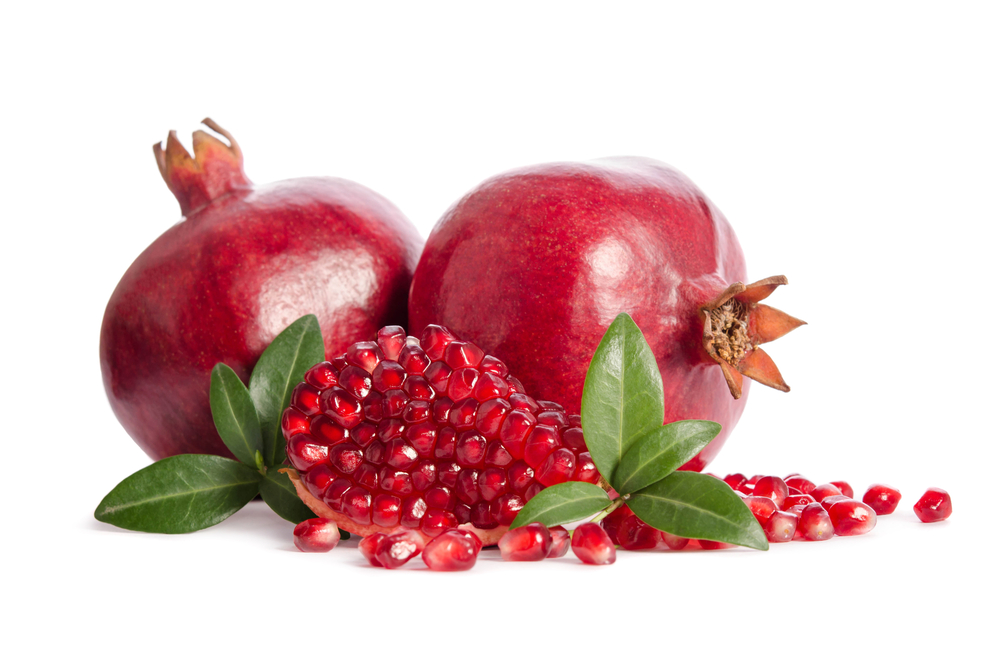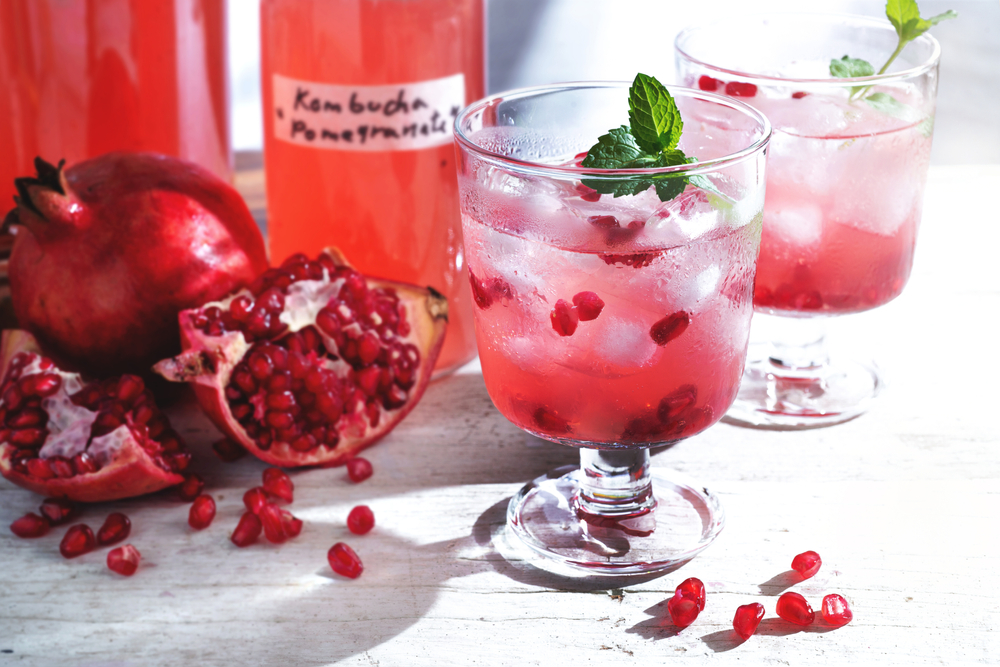Pomegranate is one of the best fruits to pair with kombucha. Not only is its sweet-sour profile a delight to the senses, but its nutritional breakdown is also nothing short of impressive. Pomegranate kombucha is an excellent choice for your next batch.
What makes this kombucha flavor distinct is the signature tartness that comes from the pomegranate. If you’ve been brewing for quite some time already, you’re probably well aware of kombucha’s inherent tartness, so having a second source of tartness is like a healthy and beautiful punch in the gut—and I mean that in the best possible way!
Table of Contents

Pomegranate Kombucha
Total Time: 2 days
Yield: 16 Servings 1x
Description
As with all fruits you ferment with your raw kombucha, choosing non-GMO certified organic is always preferable. The 48-hour fermentation at room temperature produces just the right amount of fizz.
Ingredients
Scale
- 14 cups black tea kombucha
- 1 cup pomegranate juice
- 2 teaspoons freshly squeezed lemon juice
- 4 slices fresh ginger
Instructions
- Get four 1-quart capped bottles and pour equal parts pomegranate juice, lemon juice, and ginger.
- Pour the black tea kombucha into the jars, ensuring that you leave 1 inch of headspace before tightly sealing them.
- Store the jars of kombucha in a warm and dark place for about 48 hours.
- After 48 hours, store the bottles in the fridge for at least 6 hours.
- Serve 4 to 8 oz at a time, and enjoy!
Notes
To maximize the tartness of this probiotic drink, it’s best to use unsweetened pomegranate juice for this recipe.
Substitute the pomegranate juice above for the juice of two pomegranate fruits, freshly squeezed and optionally strained.
You can use a different tea base. White, oolong, or green tea are great substitutes.
To add a bit of sweetness, add a splash of apple juice or a dash of sweetener to each serving.
- Prep Time: 5 minutes
- Fermenting Time: 48 hours
What Does Pomegranate Kombucha Taste Like?
Pomegranate kombucha tastes tart, sweet, and fruity. Some people say that it faintly reminds them of cranberry juice.
Besides the bold, tart profile this beverage is known for, most pomegranates have an underlying sweetness that feels natural and complex, even without adding extra sugar or syrup. The ginger and lemon also add a warm and tangy flavor that complements the fruity flavors well.

8 Health Benefits of Pomegranate Kombucha
Kombucha is renowned for its gut health and immunity-boosting benefits, thanks to the high volume of healthy bacteria that are introduced to your digestive system when you drink it.
Besides the kombucha base, the other ingredients in this recipe are beneficial.
Pomegranate juice:
- Is a good source of potassium, folate, iron, calcium, and vitamins C and K
- Supports heart health
- Is rich in antioxidants
- Can reduce inflammation
Freshly squeezed lemon juice:
- May prevent kidney stones
- Can aid in weight loss
- Promotes clear skin
- Has anti-cancer properties
Ginger mimics some of kombucha’s inherent health benefits—it’s excellent for digestion, boosts immunity, and has plenty of antioxidants.
This gluten-free beverage is low in calories and carbohydrates, making it easy to drink kombucha every day.
How Many Calories Are in Pomegranate Kombucha?
An 8 fl oz serving of homemade pomegranate kombucha has approximately 38 calories. Approximately 30 calories come from the raw, unflavored kombucha, and the others come from the pomegranate juice.
Homemade kombucha tends to contain fewer calories when compared to store-bought kombucha, especially if you let the brew ferment for longer than a week.
How Much Caffeine Is in Pomegranate Kombucha?
Most of the tea’s caffeine is used by the SCOBY during fermentation. After fermentation, 8 oz of black tea kombucha only has approximately 15mg of caffeine.
If you want to cut the caffeine content even further, opt for lower-caffeine tea types like white or green tea.
Should You Make This Recipe with Young, Sweet Kombucha or Older, Sour Kombucha?
People tend to fall on one side of the fence regarding the sweetness or sourness of their fermented tea. For this recipe, it’s quite a unique dilemma since pomegranate can come in very sweet or very tart varieties. I recommend you brew the kombucha to balance the flavor of the pomegranate you currently have in stock.
For example, if you have a really sweet pomegranate, consider waiting a day or longer before moving your kombucha to its second fermentation process. Conversely, if your pomegranate variant is tart, only ferment the sweet tea for seven or eight days (no less, as it can affect carbonation).
At the end of the day, these are just suggestions. Kombucha brewing is a great way to experiment with different combinations. However, if you prefer to buy pomegranate kombucha pre-made, pomegranate Health-Ade is sold in most major supermarkets

